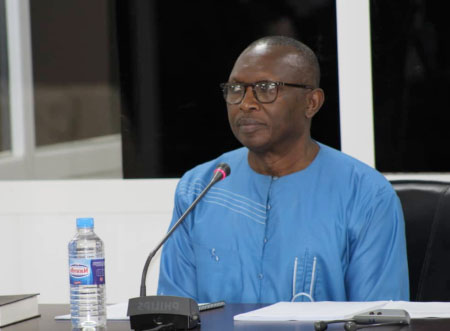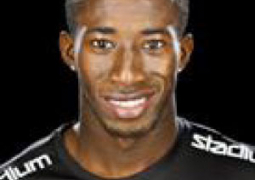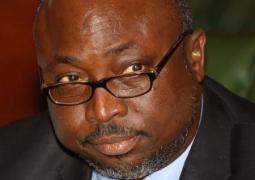
(Issued
Monday 21 January 2020)
Born
in 1951 at Kaur, Prof. Saine also made analysis on his report to the economic
wellbeing of the country’s human right violations and abuses from 1994 to 2016
during Jammeh’s dictatorial regime.
According
to him, the first thing he did in 1994 coup was to look on the individuals’
motivation for coming up with a coup idea. He said the soldiers then believed
there was corruption by the sitting government.
“The
soldiers wanted personal economic gain and political position,” he said.
Prof.
Saine who also holds a Masters degree in Conflict Management and International
Political Economics, said the junta members also complained of limited
resources.
He,
however, explained that The Gambia National Army (GNA) was a fractured
institution because of societal problem, and many of them became politically
affiliated.
“Then
many of the securities on top were having the same ambitions of their civilian
political figures,” analysing that the GNA lacked discipline to carry out its
mandate to protect the nation during 1994 coup.
Putting
into account the society and environmental factors during the coup, Prof. Saine
said that some groups including graduates from African and Western universities
had played a big role in the process.
“By
the time of the 1994 coup, Gambia was divided in social economic growth,” he
said.
Reflecting
on 1992 congress of the People Progressive Party in Mansakonko, where former
statesman Sir Dawda Kairaba Jawara vowed to resign as the secretary general and
party leader, Prof. Saine further believed that the mindset was he could not be
dislodged by power through the ballot box.
“After
failing to identify a successor in that congress, they started the division and
it greatly contributed to the coup.”
On
his perspective of Gambian soldiers’ peacekeeping mission in Liberia, he said
it affected Gambia as the gov’t failed to pay them their salaries and per
diems, which he added created some societal problem that contributed to the
overthrow of gov’t.
On
elections, he said, Jammeh and the APRC made the electoral commission
favourable to them as they created it.
“They
drafted the constitution to remove the age and the term limits for their own
favour to stay in power.”
On
his analysis on the National Intelligence Agency, which is now renamed State
Intelligence Services, Prof. Saine pointed out that creating the NIA by Jammeh
was to nurture the culture of silence to the people.
“The
NIA had arrested people, tortured, killed, some disappeared to make people
afraid. In their 11 November operation, it was to send a message to anybody who
dared challenge their role.”
“Jammeh
created groups like the green boys, junglers, black-blacks to eliminate his
political opponents. “It was extrajudicial killings.”
The
former teacher at the Yundum College further pointed that Jammeh also used
judges from Nigeria to render services in his favour, while adding that he used
Gambians to craft the laws in order to remain in power.
“He
hired and fired judges which was very uncommon in other places – that made
people to lose confidence in courts. The bar association played important role
in pre independence but it was later to gradually became silent in Jammeh’s
regime.”
On
culture and religions, Prof. Saine indicated that Jammeh understood the
personality of the Gambian culture and religion and made people to believe he
knew a lot beyond the normalcy, just to consolidate power.
“Religious
leaders and marabouts are sometimes one and the same and they help legitimacy
to those in power. I was made to know he (Jammeh) was able to do anything with
his supernatural gift. I was also made to know he had many lovers and raped
many.”
He
continued that Jammeh marginalised the Jola ethnic group and gave them some
privilege. He said that Jammeh was someone who prayed in Islam and
Christianity, whilst he focused on human sacrifice.
“In
the end of his tail government, he said homosexuals will not be allowed, just
to attract the Middle East and gain resources.”
He
alleged Jammeh of killing journalists and ordered the burning down of
Independent newspaper just to suppress the press in succumbing to his wishes.
On
the opportunity to share his perspective on the word ‘secular’, Prof. Saine
said: “The Gambia needs to be a secular state where all rights should be
respected. We need to be more open minded.”
Further
speaking on Jammeh’s dictatorial ruling, he said that he (Jammeh) hypnotised
ethnic groups by isolating the Mandinkas and violated their rights.
On
election, he said the president should not be given the privilege to choose his
own chairperson.
He
thereafter, described Jammeh as a political animal who understood his soldiers.



